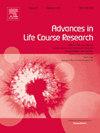异质性还是劣势?英国移民后裔的伴侣关系、生育和就业轨迹
IF 3.4
2区 社会学
Q1 Medicine
引用次数: 0
摘要
我们调查了伴侣关系、生育和就业变化如何在英国移民后代的生活中相互作用。尽管这些领域在个人生活中是交织在一起的,但大多数关于移民和少数民族的研究都是分开研究的。我们对来自英国家庭纵向研究的数据进行了多通道序列分析,以建立本地人口和移民后代(即1.5代和第二代)之间的联合伙伴关系、生育率和就业轨迹的主要类型。我们分别分析女性和男性。我们首先发现,欧洲/西方移民的后代表现出与英国本土人口相似的家庭和就业轨迹。其次,加勒比移民的后代有不同的伴侣关系和生育模式,但他们的就业结果与当地女性和男性相似,甚至更好。第三,在南亚裔女性中,保守的伴侣关系和家庭形成模式与较低的劳动力市场依恋相结合。构成挑战的不是伙伴关系和家庭形成模式的异质性,而是这些模式与劳动力市场参与率低并存。这可能会对第二代女性的福祉产生严重的长期影响。本文章由计算机程序翻译,如有差异,请以英文原文为准。
Heterogeneity or disadvantage? Partnership, childbearing, and employment trajectories of the descendants of immigrants in the United Kingdom
We investigate how partnership, fertility, and employment changes interact in the lives of immigrants’ descendants in the UK. Although these domains are intertwined in individuals’ lives, most studies on migrants and minorities have examined them separately. We apply multi-channel sequence analysis to data from the UK Household Longitudinal Study to establish the main types of joint partnership, fertility, and employment trajectories among the native population and the descendants of immigrants (i.e., 1.5 and second generation). We analyse women and men separately. We find first that the descendants of European/Western immigrants exhibit family and employment trajectories similar to those of the native British population. Second, the descendants of Caribbean immigrants have diverse partnership and fertility patterns, but their employment outcomes are similar or even better compared to those of native women and men. Third, among women of South Asian descent, conservative partnership and family formation patterns are coupled with low labour market attachment. It is not the heterogeneity in partnership and family formation patterns which poses a challenge, rather that these patterns co-exist with low labour market participation. This is likely to have serious long-term implications for the wellbeing of second-generation women.
求助全文
通过发布文献求助,成功后即可免费获取论文全文。
去求助
来源期刊

Advances in Life Course Research
SOCIAL SCIENCES, INTERDISCIPLINARY-
CiteScore
6.10
自引率
2.90%
发文量
41
期刊介绍:
Advances in Life Course Research publishes articles dealing with various aspects of the human life course. Seeing life course research as an essentially interdisciplinary field of study, it invites and welcomes contributions from anthropology, biosocial science, demography, epidemiology and statistics, gerontology, economics, management and organisation science, policy studies, psychology, research methodology and sociology. Original empirical analyses, theoretical contributions, methodological studies and reviews accessible to a broad set of readers are welcome.
 求助内容:
求助内容: 应助结果提醒方式:
应助结果提醒方式:


